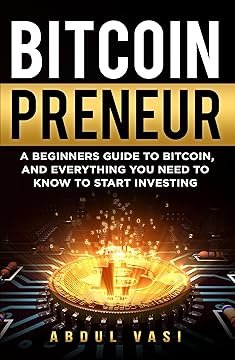Advertisement:
With over 25 years of experience as a business consultant, Abdul Vasi has helped countless brands grow and thrive. As a successful entrepreneur, tech expert, and published author, Abdul knows what it takes to succeed in today’s competitive market.
Whether you’re looking to refine your strategy, boost your brand, or drive real growth, Abdul provides tailored solutions to meet your unique needs.
Get started today and enjoy a 20% discount on your first package! Let’s work together to take your business to the next level!
Let’s face it: most of you are terrible negotiators. You approach every deal with a crippling sense of desperation, clinging to every offer like a drowning person grabs a life raft. You’re so terrified of losing out that you accept scraps, giving away your value for far less than it’s worth. You are a pathetic pushover, and it’s time to start acting like you have some self-respect.
You’re convinced that if you don’t accept the first offer, if you dare to challenge the terms, if you even think about walking away, you’ll completely destroy the deal. This is a lie, a self-sabotaging belief that allows others to walk all over you. This is why you are being taken advantage of.
The ability to walk away from a negotiation isn’t just a strategy; it’s a fundamental mindset, a core belief that you are not desperate, that your worth is not up for debate. This is the path to power. This is how you get the best deals. This is how you win.
The Pathetic Trap of Desperation
Desperation is a stench that clings to you, making you an easy target for exploitation. People can smell it, and they will use it against you. When you approach a negotiation with a desperate attitude, you’ve already lost. You’re giving your power away from the start.
You become so focused on the outcome, on getting this deal, that you ignore all the red flags, all the unfavorable terms, all the subtle ways you’re being screwed over. You’re blinded by fear, and you end up settling for far less than you deserve. You are a victim of your own emotional needs, and that’s why you lose.
- Data Point: Studies show that negotiators who are willing to walk away tend to get better deals. They’re perceived as more confident, more valuable, and less likely to be manipulated.
- Data Point: The fear of losing out (loss aversion) is a powerful psychological bias that leads to poor decision-making. Most people are not rational, and therefore easy to manipulate.
These aren’t just theories; they are the cold, hard realities of every negotiation. You are either the one in control, or you are being controlled. Your desperation is the key to that manipulation, and unless you can control that, you will always lose.
The Story of the “Eager Employee”
I once knew this guy, “Mark”, who was desperate for a job. He approached every interview like he was begging for a chance, agreeing to any conditions and demands. He was a prime example of a desperate negotiator.
He was so focused on getting the job that he failed to negotiate his salary, accept unfavorable terms, and work himself to burnout. He accepted anything and everything, and as a result was treated like trash by his employer.
He became a cautionary tale: if you do not stand for something, you will fall for everything. And because he refused to value himself, he got used by others. This is what happens when you become desperate.
Walk Away, You Can Usually Go Back, If You Want To
The ability to walk away isn’t just a threat; it’s a mindset. It’s about being comfortable with the possibility of not closing the deal, understanding that your worth isn’t determined by someone else’s offer. It’s about realizing that there are always other opportunities out there, and you don’t have to settle for less.
The truth is, most people are so afraid of losing the deal that they’re willing to cave to your demands. They’re desperate too, and if they sense that you are not, then that is when you gain power.
Here’s how to harness the power of “no”:
- Know Your Value: Understand what you bring to the table. What are your skills? What are your assets? What is your time worth? Know your numbers.
- Set Your Non-Negotiables: What terms are you absolutely unwilling to compromise on? Write them down. Make them non-negotiable. Stick to them.
- Be Willing to Walk: Don’t be afraid to say “no” and to walk away from a bad deal. Have the courage to make that move. The simple act of being willing to walk away will shift the power dynamics to your favor.
- Negotiate With Confidence: Approach every negotiation with the attitude that you are doing them a favor, not the other way around. The truth is, the person sitting across from you is just as desperate.
Stop Being a Victim, Start Being a Power Player
The world doesn’t reward weakness, and it certainly does not reward desperation. It rewards confidence, boldness, and the unwavering willingness to walk away. You are in control of your outcomes. You need to stop acting like you are a victim of the market, because you have the power to negotiate the terms.
It’s time to start acting like a power player. The world does not need more pushovers, but instead needs more people that know their worth. It’s time to start valuing yourself.
Action Steps:
- Identify Your Non-Negotiables: Determine the terms that you will not compromise on in any negotiation.
- Practice the Art of Walking Away: Get comfortable with the possibility of losing a deal, and practice walking away from bad offers.
- Build Your Confidence: Approach every negotiation with a sense of power, knowing that you hold value.
- Always Be Ready to Renegotiate: The world is ever-changing, so be prepared to walk away and renegotiate the terms in the future.
You’re not here to settle, to accept scraps, or to be taken advantage of. You’re here to dominate, to get what you deserve, and to build a life of power and abundance. It’s time to stop being a victim and start acting like a victor. The world is waiting for you to play like it.
Now go get what you deserve.




